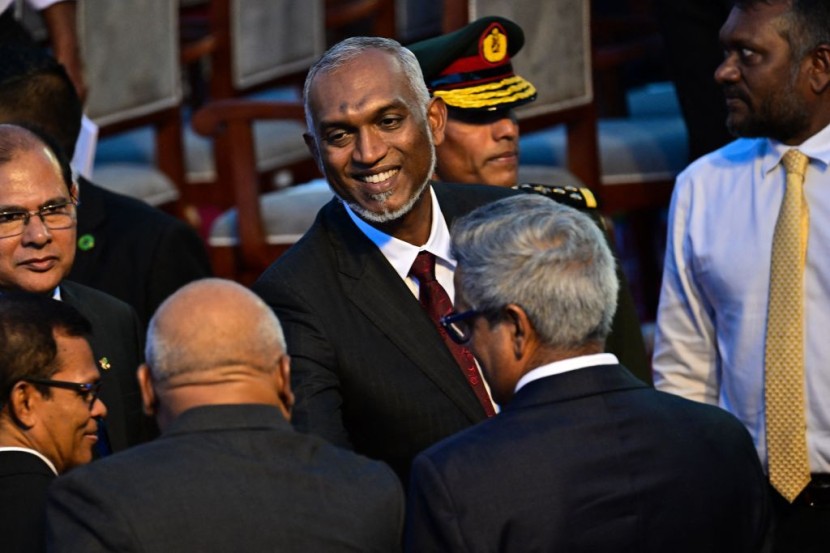The Maldives is set to undergo a significant shift in its foreign policy with the incoming President, Mohamed Muizzu, taking office this week. Muizzu has pledged to expel Indian troops from the Indian Ocean archipelago.
However, he has stated that he does not intend to replace them with Chinese forces or engage in geopolitical rivalries, as per Fox News.
Maldives President Rejects Foreign Military Presence

Muizzu's election victory in September was driven by his campaign against India's substantial political and economic influence in the Maldives. His promise to eject Indian forces played a central role in his success, but he now clarifies that he does not want to bring in Chinese forces or redraw regional balances.
In an interview, President-elect Muizzu emphasized that the Maldives is too tiny to be embroiled in geopolitical rivalries. He expressed his intention to work collaboratively with all countries, including India and China, and stressed that he is pro-Maldives.
The Maldives, renowned for its picturesque beaches and exclusive resorts, is at the center of global attention due to its strategic location in the Indian Ocean. The nation's chain of 1,192 tiny coral islands lies along crucial east-west shipping lanes, making it a geopolitical hotspot.
Muizzu's commitment to maintaining friendships with foreign countries and avoiding enmity reflects his desire for a balanced foreign policy.
He believes that the Maldives has the right to determine the extent of foreign military presence within its borders and expects this stance to be respected. The exact number of Indian troops in the Maldives remains undisclosed, leading to speculation and rumors, according to Barrons.
Read Also : George Weah Concedes Defeat to Joseph Boakai After Provisional Results Show Challenger Won Runoff
A Turning Point in Maldives' Geopolitical Landscape
Critics argue that the lack of transparency in the agreement between India and the previous Maldivian government regarding the role and number of Indian military personnel has contributed to suspicion and uncertainty.
Muizzu's surprise victory in the presidential election was a referendum on which regional power, China or India, should hold more significant influence in the Maldives. His predecessor, Ibrahim Mohamed Solih, had pursued a policy favoring closer ties with India.
Muizzu's victory, fueled by his promises of increased economic cooperation with China, is seen as a shift towards a more pro-China stance. While he plans to remove foreign military personnel from the Maldives, he remains committed to trade relations with India and China.
The Maldives has been a focal point for the competition between China and India, with both nations vying for influence in the archipelago. Muizzu's presidency is expected to reshape the dynamics of this competition, potentially challenging India's power in the region. However, he intends to balance economic relations between India and China while maintaining cordial ties with both countries.
Both India and China sent high-level representatives to attend Muizzu's inauguration, underscoring the significance of the Maldives in their regional strategies. The international community will be closely watching how Muizzu's presidency unfolds and its implications for the balance of power in the Indian Ocean region, Aljazeera reported.
Related Article : Portuguese Prime Minister Resigns Amid Corruption Investigation
© 2025 HNGN, All rights reserved. Do not reproduce without permission.








